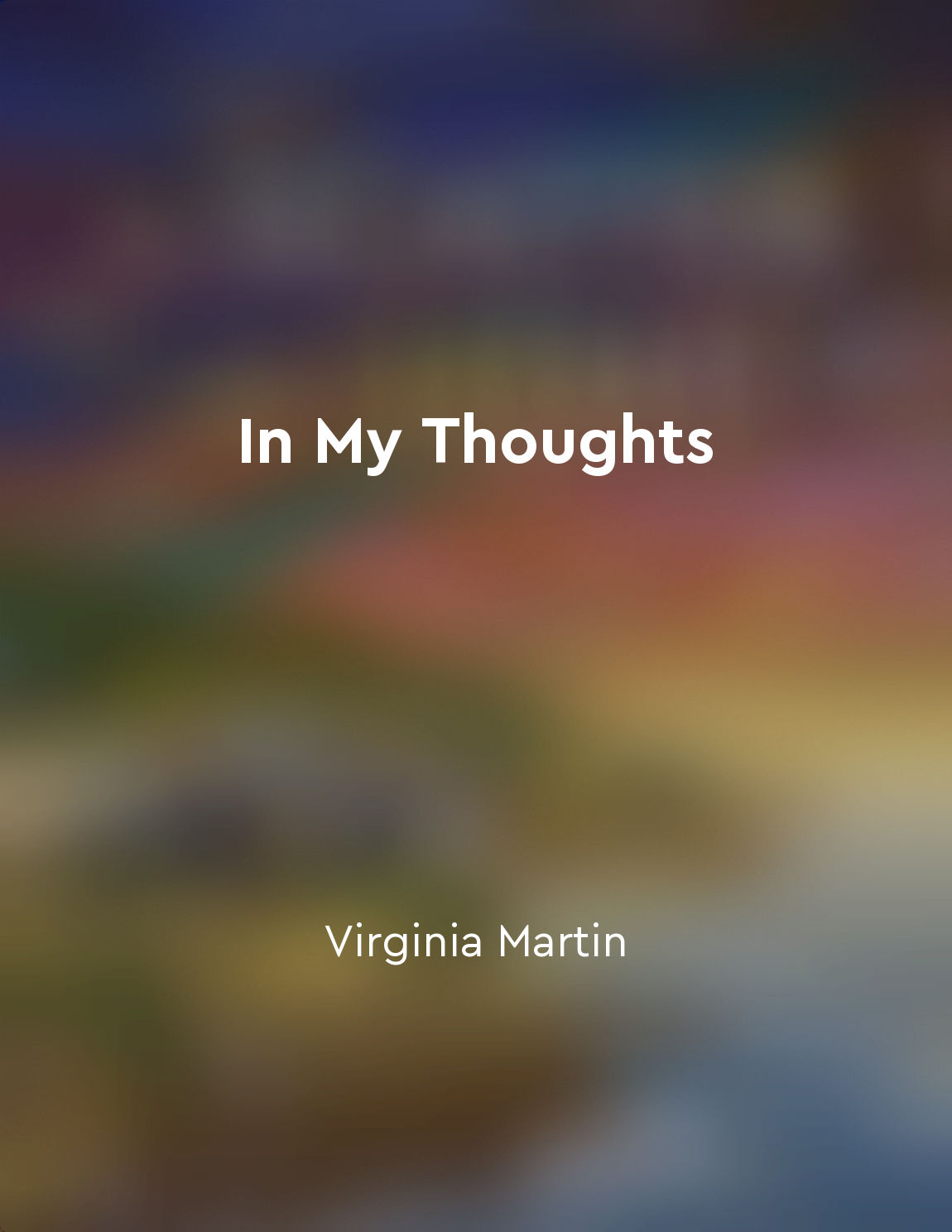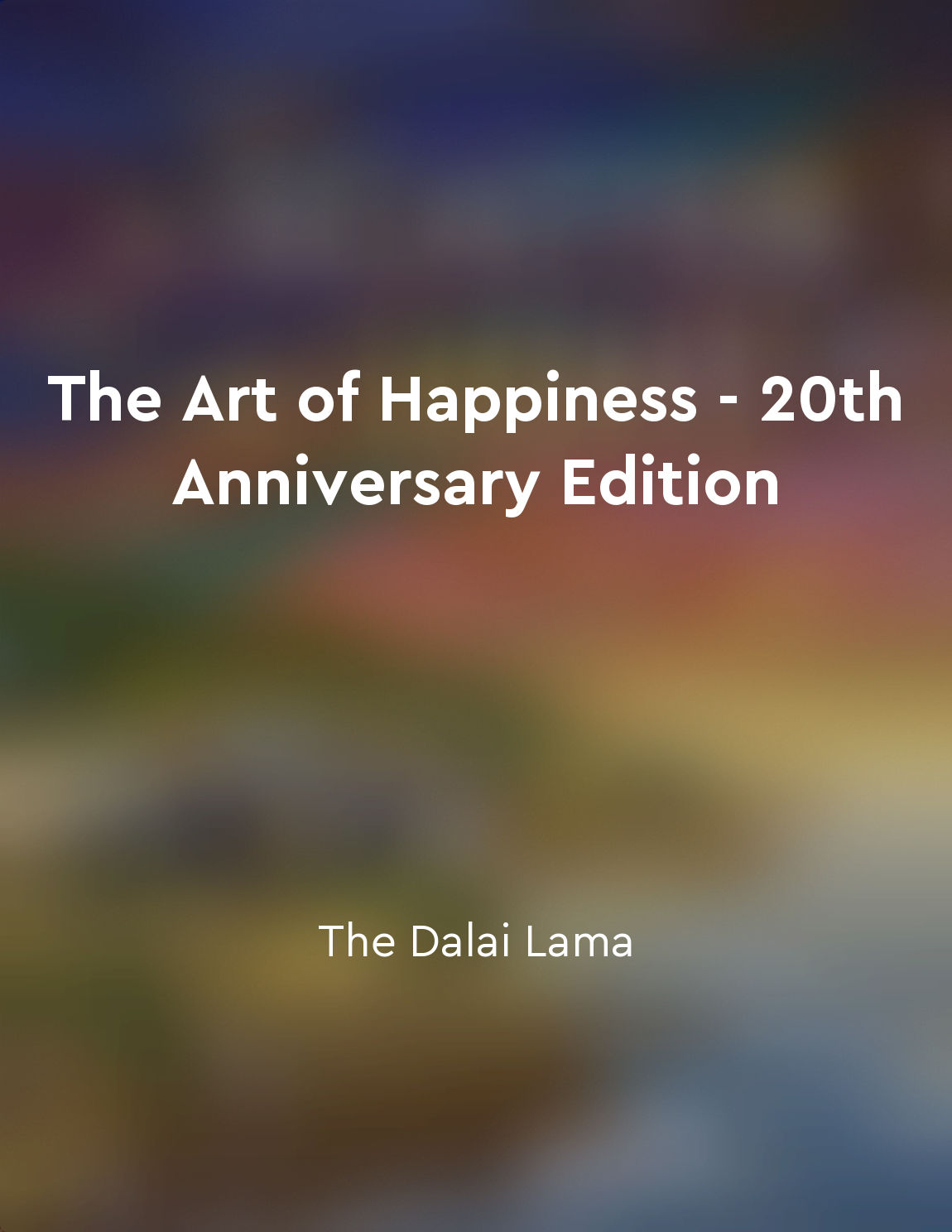Mindful education fosters a sense of community and connection from "summary" of The Way of Mindful Education by Daniel Rechtschaffen
When we engage in mindful education practices, we create a space where students feel connected to themselves and to each other. This sense of connection fosters a feeling of community within the classroom, where everyone feels seen and heard. By practicing mindfulness together, students learn to be present with each other in a way that is supportive and non-judgmental. This creates a safe environment where students can express themselves authentically and build meaningful relationships with their peers. In a mindful classroom, students learn to listen deeply to one another and to communicate with empathy and compassion. This deep listening fosters understanding and connection, as students come to appreciate each other's unique perspectives and experiences. Through mindfulness practices such as mindful breathing and mindful listening, students develop the skills to be fully present with one another, creating a strong sense of community based on mutual respect and understanding. Furthermore, mindfulness practices help students develop a sense of interconnectedness with the world around them. By cultivating awareness of their thoughts, feelings, and actions, students learn to see how their individual experiences are connected to the experiences of others. This awareness fosters a sense of empathy and compassion, as students come to recognize their shared humanity and interdependence with one another. In a mindful classroom, students learn to work together towards a common goal, supporting each other in their personal growth and learning. By practicing mindfulness as a community, students develop a sense of responsibility towards one another, creating a supportive environment where everyone can thrive. Through mindfulness practices such as mindful movement and mindful eating, students learn to care for themselves and each other, fostering a sense of connection and well-being within the classroom.- Mindful education creates a space where students feel connected to themselves, to each other, and to the world around them. This sense of connection fosters a strong sense of community within the classroom, where everyone feels supported, valued, and understood. By practicing mindfulness together, students learn to cultivate empathy, compassion, and respect for one another, creating a positive and nurturing learning environment for all.
Similar Posts

Learning from failures paves the way to success
Failure is not the end; it is simply a stepping stone on the path to success. In life, we are bound to face setbacks and obstac...
Accepting things as they are leads to inner peace
When we resist the way things are, when we fight against reality, we create inner turmoil. This resistance can manifest as stre...
Practice selflove and compassion towards yourself
To truly understand the power of self-love and compassion, we must first recognize that we are deserving of these qualities. It...
Human mind evolved to prioritize survival over truth
The human mind, according to evolutionary psychology, is a product of natural selection. Our ancestors' brains were shaped by t...

Accepting setbacks as temporary setbacks rather than failures
In the pursuit of perfection, setbacks are inevitable. They are a natural part of the process, not a sign of failure. When we v...
Mindfulness is essential for developing insight
Mindfulness, the practice of paying attention in a particular way: on purpose, in the present moment, and non-judgmentally, is ...

Practice selfcare to maintain happiness
Taking care of oneself is crucial in maintaining happiness. When we neglect our own well-being, we are more likely to experienc...
The practice of mindfulness can help us break free from habitual reactivity
When we are reactive, we are not fully present in the moment. Instead, we are reacting based on past experiences, biases, and a...
Mindfulness is a lifelong journey of selfdiscovery
Mindfulness is not something that you can just pick up and master overnight. It is a process that evolves over time, requiring ...

Release the need for control
The desire for control is a common human trait. We want to feel in charge of our lives, to be the masters of our own destinies....

